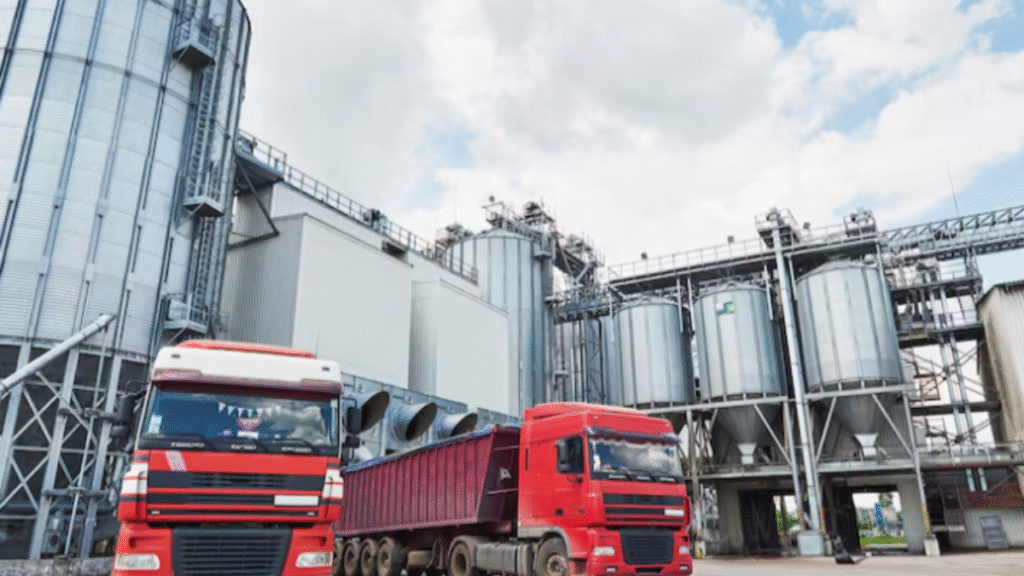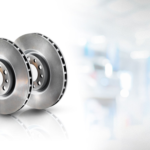In the modern transportation, logistics, and industrial sectors, balancing performance with environmental responsibility has become a defining challenge. Diesel engines remain the backbone of many industries due to their power, durability, and fuel efficiency. However, with growing emphasis on sustainability and emissions reduction, the use of Diesel Exhaust Fluid (DEF) has become an operational necessity.
For organizations managing heavy-duty vehicles, construction machinery, or agricultural equipment, ensuring a consistent supply of DEF is vital to both regulatory compliance and operational continuity. This is where bulk diesel exhaust fluid solutions offer a transformative advantage—providing cost-effective, scalable, and environmentally friendly access to high-quality DEF without the hassles associated with smaller containers or frequent restocking.
This comprehensive guide explores what DEF is, why bulk solutions are essential, and how they can improve efficiency, reliability, and sustainability for businesses of all sizes.
Understanding Diesel Exhaust Fluid and Its Function
Diesel Exhaust Fluid is a high-purity, non-toxic mixture made up of 32.5% urea and 67.5% deionized water. It is used in Selective Catalytic Reduction (SCR) systems to convert harmful nitrogen oxide (NOx) emissions—produced by diesel engines—into harmless nitrogen and water vapor. This process dramatically reduces air pollutants, helping vehicles meet strict environmental standards.
Since 2010, DEF has become a mandatory component for nearly all medium and heavy-duty diesel engines. Without DEF, these engines cannot function properly, as the SCR system will limit power or even prevent the engine from starting once the DEF tank is empty. For this reason, maintaining an adequate and uncontaminated DEF supply is not just a matter of compliance—it’s essential to keeping vehicles operational.
As fleets continue to grow and environmental regulations tighten, efficient DEF management has become a crucial part of sustainable operations. This growing demand has fueled the need for bulk diesel exhaust fluid delivery and storage systems.
Why Bulk Diesel Exhaust Fluid Is a Smart Investment
For small operations, purchasing DEF in 2.5-gallon jugs or 55-gallon drums might seem sufficient. However, as consumption increases, this approach becomes inefficient, costly, and unsustainable. Bulk DEF storage and delivery provide a scalable and efficient solution tailored to the needs of large fleets, industrial facilities, and agricultural operations.
Here’s why switching to bulk DEF is a smart investment:
- Cost Savings
Buying DEF in bulk quantities significantly lowers the price per gallon compared to smaller packaging. It also eliminates unnecessary packaging waste and reduces the frequency of deliveries, leading to lower transportation costs over time. - Operational Efficiency
With on-site storage tanks, operators can refill vehicles and equipment easily and quickly, reducing downtime. Automated dispensing systems further streamline the process, ensuring uninterrupted productivity and consistent supply. - Guaranteed Quality and Purity
Maintaining DEF purity is critical. Bulk systems minimize contamination risks because they use closed-loop dispensing systems and dedicated transport equipment that comply with ISO 22241 standards. - Environmental Sustainability
Bulk storage eliminates the need for single-use plastic containers and minimizes waste generation. It also reduces the number of delivery trips, which lowers overall carbon emissions. - Scalability and Flexibility
Bulk systems are adaptable to any operation size. Whether managing a small regional fleet or a national logistics network, companies can easily scale their DEF capacity as their operations expand. - Reduced Administrative Burden
With bulk systems, there’s no need to manage countless small orders or keep track of multiple containers. This simplifies inventory control and administrative processes, freeing time and resources for more critical tasks.
How Bulk DEF Delivery Works
Bulk DEF delivery involves transporting large volumes of DEF—typically thousands of gallons—directly to customer sites using specialized tanker trucks or bulk transport containers. The fluid is then pumped into on-site storage systems that may range from 275-gallon totes to large-capacity tanks of 10,000 gallons or more.
These storage systems are designed to maintain DEF integrity by protecting it from temperature fluctuations, contamination, and exposure to sunlight. Many modern installations include monitoring technology that tracks fluid levels and automatically alerts suppliers when refills are needed, ensuring a continuous and efficient supply chain.
In addition, reputable suppliers use dedicated DEF-only transport and dispensing equipment to preserve the product’s chemical composition and prevent any cross-contamination with other fluids such as fuel or lubricants.
Best Practices for Storing and Handling DEF in Bulk
Proper handling and storage are key to maintaining DEF quality and maximizing equipment performance. Here are several best practices for managing DEF in bulk:
- Use Approved Storage Materials
Tanks, pumps, and hoses should be made of stainless steel or high-density polyethylene (HDPE). Avoid materials like carbon steel, copper, and zinc, which can cause contamination and damage the SCR system. - Temperature Management
DEF freezes at 12°F (-11°C) and should be stored within a temperature range of 23°F to 77°F (-5°C to 25°C). While freezing doesn’t harm DEF, prolonged exposure to high heat can degrade the urea concentration. - Prevent Contamination
DEF must remain pure to function correctly. Always use dedicated dispensing equipment and avoid contact with fuel, oil, or other substances. Even small contaminants can trigger costly repairs and performance issues. - Regular Testing
Periodically test DEF for concentration accuracy using a refractometer or send samples to a lab for verification. This ensures ongoing compliance with ISO 22241 standards. - Labeling and Separation
Clearly label DEF tanks and keep them separate from fuel storage areas. Proper labeling prevents accidental cross-use and supports workplace safety compliance.
Following these practices not only protects equipment but also maximizes the lifespan and reliability of the DEF supply.
Industries That Rely on Bulk DEF Systems
The demand for bulk DEF spans across multiple sectors, each with unique requirements and operational challenges:
- Trucking and Transportation: Large fleets depend on DEF for daily operations, and bulk systems ensure they never experience downtime due to supply shortages.
- Construction: Heavy-duty off-road equipment like bulldozers and cranes consume DEF continuously on job sites, making on-site bulk storage a necessity.
- Agriculture: Farmers use DEF in tractors, combines, and other equipment to stay compliant with emission regulations while maintaining productivity.
- Mining and Industrial Operations: Bulk DEF supports round-the-clock operations where equipment runs continuously under demanding conditions.
- Public Sector and Utilities: Municipal fleets, emergency vehicles, and service trucks also rely on DEF for environmental compliance and operational efficiency.
For all these sectors, bulk diesel exhaust fluid delivery ensures reliable performance, cost efficiency, and environmental stewardship.
Technology and Innovation in DEF Management
The integration of technology into DEF logistics has revolutionized how companies manage their supply. IoT-enabled monitoring systems now allow for real-time tracking of DEF levels, temperature, and consumption rates. These systems automatically notify suppliers when replenishment is required, enabling predictive delivery scheduling.
Additionally, advanced filtration and dispensing technologies help maintain product purity and improve efficiency. Hybrid and electric DEF dispensers reduce energy consumption while maintaining consistent flow rates, ensuring precision and reliability.
For fleets using telematics, DEF usage data can be integrated with vehicle diagnostics, helping managers monitor consumption trends and identify maintenance needs early. This holistic approach enhances operational visibility and reduces waste.
Choosing the Right Bulk DEF Supplier
Selecting a trusted supplier is crucial to the success of your DEF program. Reliable suppliers provide not only the fluid itself but also the expertise, infrastructure, and support to ensure uninterrupted operations. When evaluating a partner, consider the following factors:
- Quality Assurance – Verify that the supplier adheres to ISO 22241 standards and provides documentation for product purity and composition.
- Delivery Flexibility – Choose suppliers capable of meeting your scheduling and volume needs, including emergency refills.
- Technical Support – Look for providers offering installation guidance, maintenance assistance, and monitoring system integration.
- Sustainability Practices – Partner with suppliers committed to reducing waste and minimizing environmental impact through efficient logistics.
Partnering with a knowledgeable provider ensures that your bulk diesel exhaust fluid system remains reliable, cost-effective, and environmentally responsible.
Environmental and Economic Benefits
The shift to bulk DEF systems brings measurable advantages to both business and the environment. Economically, companies save money by purchasing larger volumes at lower rates, reducing packaging costs, and minimizing downtime. Environmentally, bulk delivery reduces plastic waste, decreases transportation emissions, and promotes cleaner operations.
Additionally, by maintaining consistent DEF quality, engines operate more efficiently, producing fewer emissions and improving overall fuel economy. This dual benefit—economic savings and sustainability—makes bulk DEF one of the most responsible operational investments a company can make.
Common Challenges and How to Overcome Them
Despite its many benefits, managing DEF comes with challenges such as contamination risks, temperature sensitivity, and inconsistent supply. Overcoming these requires proactive management and adherence to industry best practices:
- Contamination: Always use DEF-specific equipment and inspect storage systems regularly.
- Temperature Variations: Invest in insulated tanks or climate-controlled storage areas to maintain stable conditions.
- Supply Chain Dependence: Build relationships with reputable suppliers who offer reliable delivery and responsive customer service.
With proper management and strong supplier partnerships, these challenges can be easily mitigated.
Conclusion: Driving Toward a Cleaner, More Efficient Future
As industries continue to prioritize sustainability and regulatory compliance, DEF will remain a vital component of modern diesel operations. Adopting bulk diesel exhaust fluid solutions empowers businesses to streamline operations, cut costs, and reduce their environmental footprint—all while maintaining peak engine performance and reliability.
From transportation fleets to heavy machinery operations, bulk DEF systems offer unmatched convenience, purity, and scalability. By investing in bulk storage and partnering with trusted suppliers, organizations not only enhance efficiency but also demonstrate a genuine commitment to sustainable business practices.
In a world where cleaner operations and smarter logistics define competitive advantage, bulk DEF delivery isn’t just a convenience—it’s a necessity for success.







